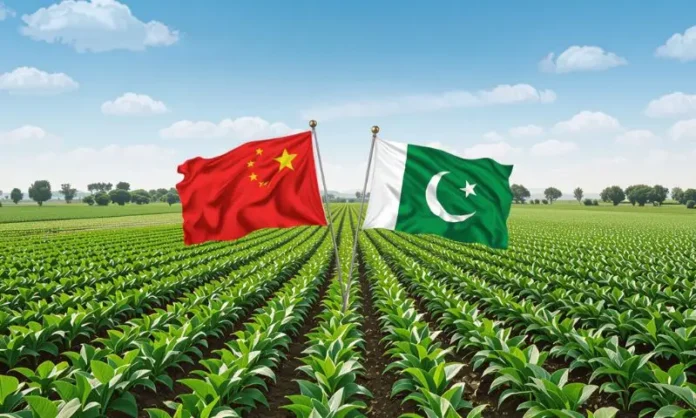ISLAMABAD: Pakistan and China have agreed to form technical working groups to identify and implement projects focused on high-yield cotton seed development, advanced water-saving irrigation technologies, and modern farming techniques.
The decision was made during a meeting between Minister for National Food Security and Research Rana Tanveer Hussain and a Chinese delegation on the sidelines of the China-Pakistan Economic and Trade Exchange Conference in Islamabad.
Ambassador Jiang Zaidong reaffirmed China’s commitment to strengthening agricultural cooperation with Pakistan. He welcomed Pakistan’s willingness to work together and noted the potential for a long-term partnership in food security, technology transfer, and rural development.
During the meeting, Hussain pointed to the challenges Pakistan has faced in recent years, especially in cotton production, where falling yields and outdated seed varieties have caused setbacks. He said Pakistan is interested in learning from Xinjiang’s progress in agricultural productivity, particularly in arid and semi-arid regions that resemble parts of Pakistan.
He said Xinjiang’s results in crop yield optimisation, irrigation management, and mechanisation could be used as a model to improve Pakistan’s agriculture sector.
Hussain said agriculture is not only a national priority but also a key area for advancing Pakistan-China ties.




